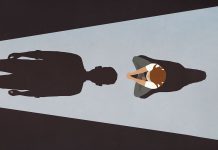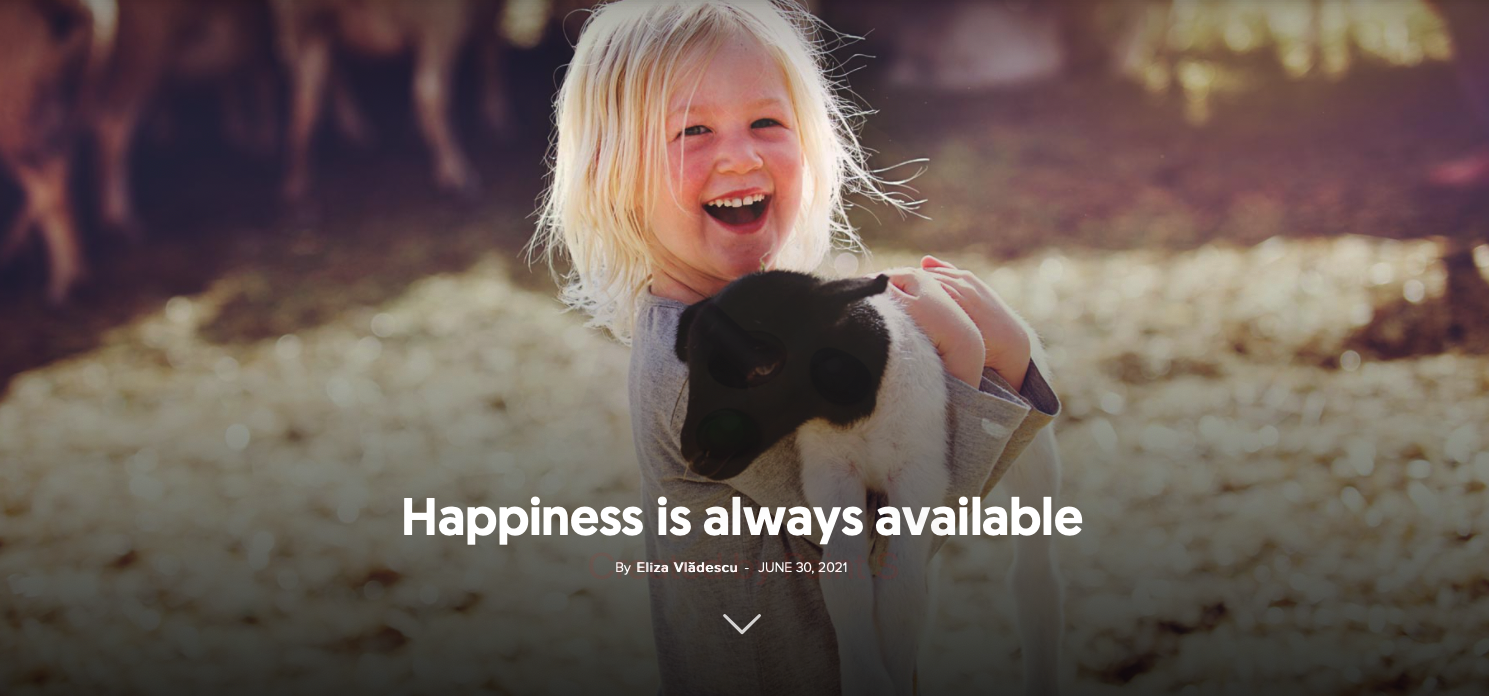The first few seconds are confusing, voices and blurred figures buzzing nearby, and it seems to me that some clumsy hands are trying to pull me out of this zigzag between sleep and wakefulness. I clearly hear a woman’s voice announcing that I’m waking up and, before I’m completely out of this state of drowsiness, I realise I’m in intensive care.
The last hours, days, and weeks have been an emotional rollercoaster. I have been living a chronicle of inadequacy and interrupted thoughts. But here and now, before the doctor comes to my bedside with the first postoperative news, before the nurse even asks me how bad the pain is on a scale of 1 to 10, it feels as if a friend is throwing small pebbles wrapped in some angel’s notes at my window. It’s a warm day that no longer eludes me, which even has a tinge of happiness, although I never soar easily into this (un)comfortable and fickle realm of happiness.
It’s quiet in the upstairs patient room that is waiting for me with a pair of pyjamas on the bed and a journal in my luggage. Even in the operating room it is almost quiet, and the doctors speak in a low, almost whispering tone. But here, in the intensive care unit, it’s bustling and the silence is broken by the weight of the never-changing words, over which each patient steps differently, depending on how fragmented the story under their feet is.
The pain hits you as soon as you open your eyes and intensifies as the minutes pass. The Holy Grail is an infusion bag of Tramadol, which will temporarily dull the feeling of the scalpel slicing through the flesh again, this time without anaesthesia.
“She’s going to get better and write an article about it.” I’ve lost count of the number of times the memory of the dialogue that had been narrated to me flashed at the back of my mind. That phrase sought to banish from the young mind of a child the shadows of a summer which was different from those before. That’s how my sister had explained to her doe-eyed little boy that the situation was not perfect back “home”. She called our house “home”, even though they had moved to the other side of the world where longing begins.
“Granny almost died?” Levi asked then, confused, in broken Romanian. For him, apart from his grandmother’s fragility, nothing could have disturbed our tiny house at the foot of the mountain. It was too early and difficult for him to understand that we are all fragile, even his favourite aunt—as difficult as it had been for me to assimilate that the world I found myself in after receiving the diagnosis no longer resembled the one I had carelessly parted with the previous evening.
As I write this, I don’t know if I’ll be okay, as the doe-eyed little boy believes in his wide-eyed innocence and love. What I do know, however, is that a gentle calm has settled over my thoughts, which sweeps away the storm and its remnants like autumn gossamer, and that in my mind there are no longer the same fears, not even resignation or detachment, but the feeling that I pulled through, however many ups and downs will fall upon me.
Sociologists say that there are no linear and permanent states of happiness, but only episodes, moments that repeat throughout life, at variable intervals: from seconds to years to decades. In my country, ordinary people tend to think that contentment is an emotional state more easily accessible than happiness. “Happiness is for the boyars (aristocracy).”
If that is indeed the case, then today is the day I am a full member of this caste of the happy. “A few seconds before happiness”—that’s the name given to a black-and-white photo from 1956, which shows a little boy and a man (perhaps his father) holding a puppy behind his back with his right hand, about to present it to the boy. A title that would fit like a glove, if my life were a novel, I said to myself when I laid eyes on the photo. Because in all these years I found myself too often a few seconds behind happiness or ahead of it.
Here, in the midst of happiness—if “happiness” is the name of this living amalgam of peace and joy that I now experience—I would like time to freeze, suspending me in an endless intermission of gratitude.
It is dark already; the orderlies brought me to my room, whose quietness I longed for all afternoon. I should sink into a deep sleep, groggy from the sleeping pill and the fatigue of the sleepless night before, but sleep doesn’t want to make an appearance. It’s not because of the blinding light in the hospital lobby, which penetrates my eyelids that are accustomed to sleeping in the dark, nor because of the click of the doors of the other rooms at regular time intervals.
I shall not sleep because happiness is fully alive only in the present time, and I want to broaden the horizon of each moment, to make them roomier for all the memories that buzz inside me like a swarm of bees on a branch in the spring.
Maybe it’s true that memory cheats when we inventory the (un)happy situations we have been through, like a storyteller who selects only the key elements of these experiences. And yet, as the infusion drips through the tubes, drowning out any remnants of pain, the memories loop too vividly for me to suspect my memory of breaking them down and putting them back together as it pleases.
First of all, the memory of another night. The night when, in my favourite cabin, by the river that sang its song under my window, I finally gave up the restlessness that had become my second nature. I had been stuck in this disquietude for a long time because I couldn’t see which way to run.
In the first hours of that night among the mountains, breathing the deepest loneliness, I wished my loved ones were with me, to loosen the grip of anxiety. Not even God seemed to be near, in the haze of turmoil. The fear of the unknown and regret carved deeply into my thoughts. In the light of the lamp in the wooden room, my past looked like a slice of Swiss cheese whose holes kept getting wider. I was living the words of the character in the Book of Whispers: “More than anything else, I am what I have not been able to achieve. Of all the lives I carry, like a bunch of snakes knotted at the tail, the most real is the life unlived.”[1]
At the end of that struggle, with the dawn, I stumbled upon the whisper of God breaking through the words of Scripture. He promised me “peace”, “future” and “hope” (Jeremiah 29:11). I felt that He was asking me to believe His words with the simple trust I place in a friend’s promise. I left the cabin with the new thought that His gift can fill the holes of my Swiss cheese years.
Then I felt Him walking ahead of me on the way home from the cabin, as He built for me a spectacle of clouds and steam-bitten peaks with the same hands that unravel life like a sheet of paper.
I also found Him within the walls of a shop, after half a day’s search for an essential article. He was there, talking to me through one of the saleswomen. That woman whose eyes were the only thing I saw knew exactly what I needed better than I did. She had gone through the webs of the same experiences. She searched patiently on the shelves and in the warehouse. She was happy when she found what I needed as she thought it was sold out. And she sat there beside me, telling me her story, hugging me like an old friend, and encouraging me with the words I needed to hear, which Someone Else seemed to be whispering into her ear.
I also recognised Him in the messages that came to bring glimmers of light into my darkness. All those words that I memorised after a diligent rereading, for example, of O’s messages—a friend who speaks another language, but whose letters always found me, on winding roads, at the right time.
I also met Him in every detail of my preparations for my hospital stay on the other side of the country. I also saw Him in the low-priced rent I ended up paying for what I thought would be a room, but which turned out to be the entire floor of a house in one of the expensive neighbourhoods of the city. Then I caught a glimpse of Him when I met the owners of the house, who put aside the differences between us and religious preconceptions, becoming my family. These people offered me the best fruits of their little garden, fed me soups to help me get better, and prayed for me as if I had nestled in their hearts, where they carry those who are of their flesh and blood. Then, on departure, they hid a treasure in my luggage, just like in the case of the biblical Benjamin: the rent money I had paid and the full cost of an expensive medical procedure. Also in my luggage, there was a message asking me not to make any confusion about the identity of my benefactor. Everything that their hands had given to me to ease my needs was actually from Him.
From then, I saw Him clearly for a while. Then I lost Him again among the new fears that piled up in my mind. And then, after searches and indecisions, on the thread of stories that only He can weave, I recognised His voice again, during the first dialogue with the doctor who was going to take over my case. I recognised Him as I prepared for the road, knowing my tendency to collapse when the going gets tough.
There are several months and a mountain of love between the night I took stock of the closed doors and lost opportunities in my life and this night when He is making a new path under my feet and a breathable sky above my heart.
Maybe all will be well and maybe one day I will write about my healing journey. If it will be so, I will not forget to acknowledge that happiness is a continuous exercise of closeness (Psalm 73:28). That we are not the sum of the nights with bricked-up doors or the marks that our losses have left in us, but the result of the moments when we got so close to God that nothing could keep Him out of our sight.
Carmen Lăiu is an editor at Signs of the Times Romania and ST Network.
You might also enjoy reading: Happiness is always available


















